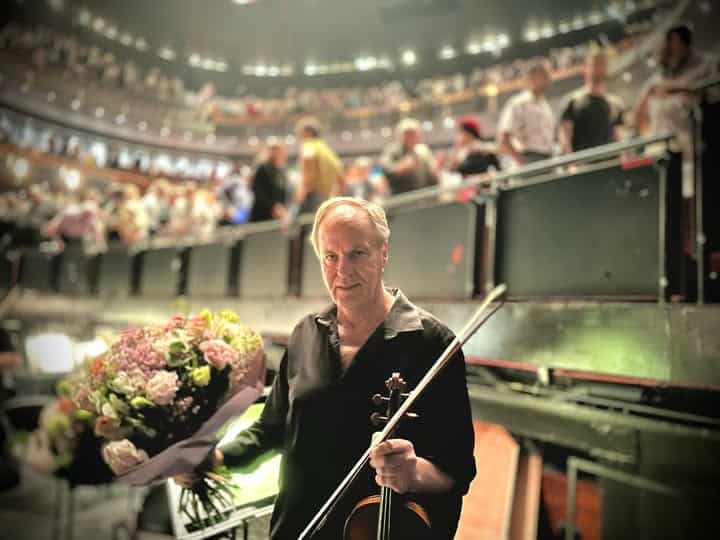A Chicago cellist explains: Why we work only 20 hours a week
mainDavid Sanders, cellist in the Chicago Symphony Orchestra since 1974, outlines their working culture:
Something that members of a world-class symphony orchestra are used to hearing, especially around contract negotiations time, is that “those musicians only work twenty hours a week” (four rehearsals and four concerts). What is missing from that statement? Let’s see.
Most members of a great orchestra began working at their chosen instrument from the time they were young children, maybe as young as four or five years old. I was a late starter; I started cello lessons at age 14. But it’s not just a matter of taking lessons over a long period of time. Generally speaking, the successful instrumentalists practice on average anywhere from three to six hours a day, every day. Think about that. What have most people been doing from the time they were five years old for three hours a day, or six hours a day. There are very few courses of study or careers that take that kind of dedication, attention to detail, concentration, and a general fanaticism over the course of ten, fifteen, twenty or twenty-five years. And that is before you get a job. A violinist who starts the instrument at five years of age will very likely study and practice that instrument for twenty years or more before getting a job in a great orchestra. That’s over forty thousand hours of practice.
Okay, so you’ve been practicing for 40,000 hours, and you apply for an audition for the Chicago Symphony Orchestra. So do 149 other violinists. And your audition lasts somewhere between two (not a good sign) and fifteen minutes (a very, very good sign). You’re called back to the finals, along with two or three others, and low and behold, you win the job. Thank God, you can stop practicing. WRONG!!!!
When I was the lucky one on April 23, 1974 and got my job in the CSO, of course I knew that I was joining possibly the best Orchestra in the world. A year earlier Time Magazine had had a cover article featuring Sir Georg Solti, who was to be my music director, and called him “the fastest baton in the west.” The article also rated U. S. orchestras, and for the CSO it simply said “sine qua non.” I was excited. I was practicing. I wanted to earn my keep, so to speak. But I wasn’t prepared for what happened when I sat down in that great cello section in that great Orchestra. All around me, everywhere I looked and listened, there was such greatness coming from so many instruments. And they were doing it with such naturalness and ease, yet with an incredible intensity. I had the intensity at that time, but I didn’t feel as if I had the naturalness and ease, so I started practicing even harder.
You cannot rest on your laurels in the Chicago Symphony, or in any world-class orchestra. You never want to let your colleagues down, yourself down, or, maybe more importantly, the music down. Now in my 42nd year, I still don’t want to let my colleagues, myself or the music down. It is a never-ending struggle to continually try to master a musical instrument, to keep improving, be it string, wind, brass, or percussion. And believe me when I say, twenty hours a week is just the beginning.






Comments